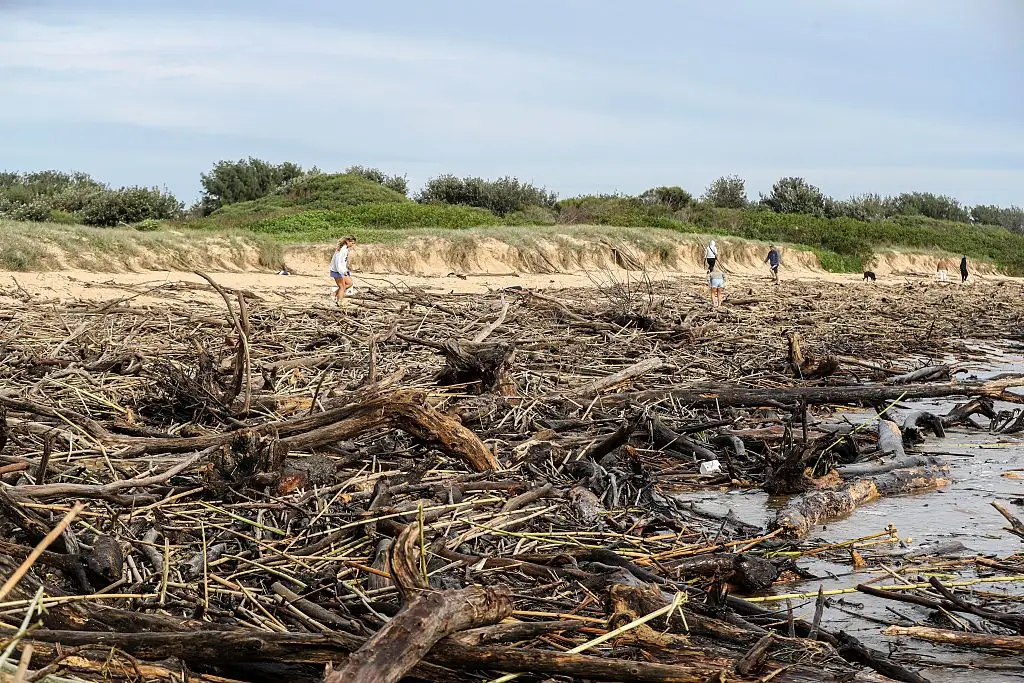
A link has been discovered between cancer and an environmental crisis that President Donald Trump has previously labeled an 'expensive hoax'.
We are, of course, talking about global warming, which the 78-year-old having described as 'nonexistent' and 'mythical' during his first term in office, with him even withdrawing the US from the Paris Agreement.
For those unaware, the Paris Agreement is an international treaty which sees countries pledge to tackle climate change, which UNILAD has previously explained.
On Trump's first day back in the Oval Office for his second term in January, he signed an executive order titled 'Putting America first in international environmental agreements'. The motion will see the US withdraw from the agreement, which will take effect later this year, on November 4.
Advert
But exactly how is climate change, which has been scientifically proven, linked to cancer?

Researchers in Egypt analyzed the rates in which women in 17 Middle Eastern and North African countries have developed cervical, uterine, ovarian and breast cancers, comparing the figures to the rising temperatures.
Shockingly, they found that for every 1.8°F [1°C] that temperatures increased, up to 280 more cases were reported per 100,000 women.
Out of the four types of cancer, increases in ovarian cancer rose the sharpest - at 280 - while breast cancer increased the least - although it still recorded 173 more cases per 100,000 people.
“As temperatures rise, cancer mortality among women also rises - particularly for ovarian and breast cancers,” first author of the paper, Dr Wafa Abuelkheir Mataria of the American University in Cairo, told Frontiers.
"Although the increases per degree of temperature rise are modest, their cumulative public health impact is substantial."

Fatalities from the cancers almost double per each 1.8°F [1°C] temperature rise, from 171 deaths per 100,000 people, to 332.
The sharpest rise in mortalities was those with ovarian cancer - at 332 - with cervical cancer rising to 171 fatalities per 100,000 people.
Co-author Dr Sungsoo Chun, also of American University, theorised: "Temperature rise likely acts through multiple pathways. It increases exposure to known carcinogens, disrupts healthcare delivery, and may even influence biological processes at the cellular level.
"Together, these mechanisms could elevate cancer risk over time."
As Chun mentioned, despite the observation, they have been unable to prove that climate change has caused the increase.

Instead, they believe that due to global warming, there has been an increase in carcinogens in the air due to wildfires and hurricanes - which occur more frequently due to climate change.
Due to these extreme weather events, the researchers believe that it could have a knock-on effect on women attending screenings and cancer treatment, which may cause an increase in deaths.
Chun added: "Women are physiologically more vulnerable to climate-related health risks, particularly during pregnancy.
"This is compounded by inequalities that limit access to healthcare. Marginalized women face a multiplied risk because they are more exposed to environmental hazards and less able to access early screening and treatment services.”
If you’ve been affected by any of these issues and want to speak to someone in confidence, contact the American Cancer Society on 1-800-227-2345 or via their live chat feature, available 24/7 every day of the year.
Topics: Cancer, Climate Change, Donald Trump, World News, Health